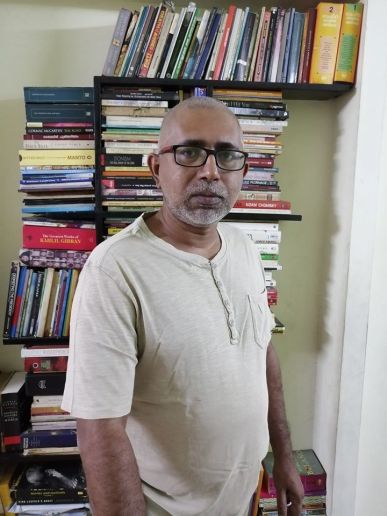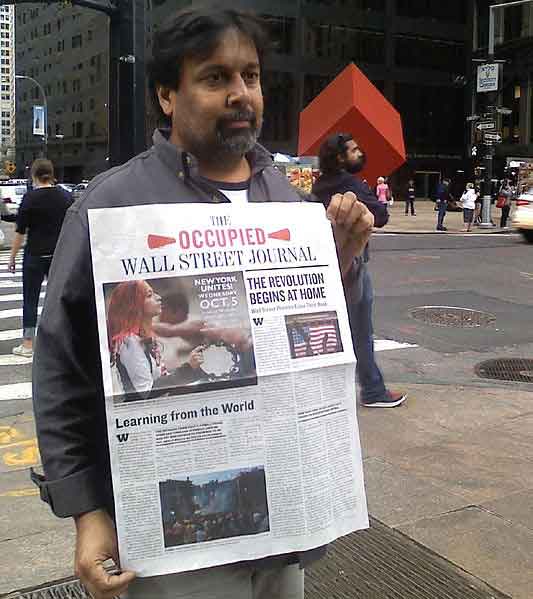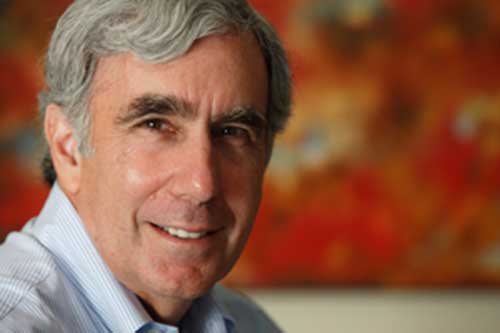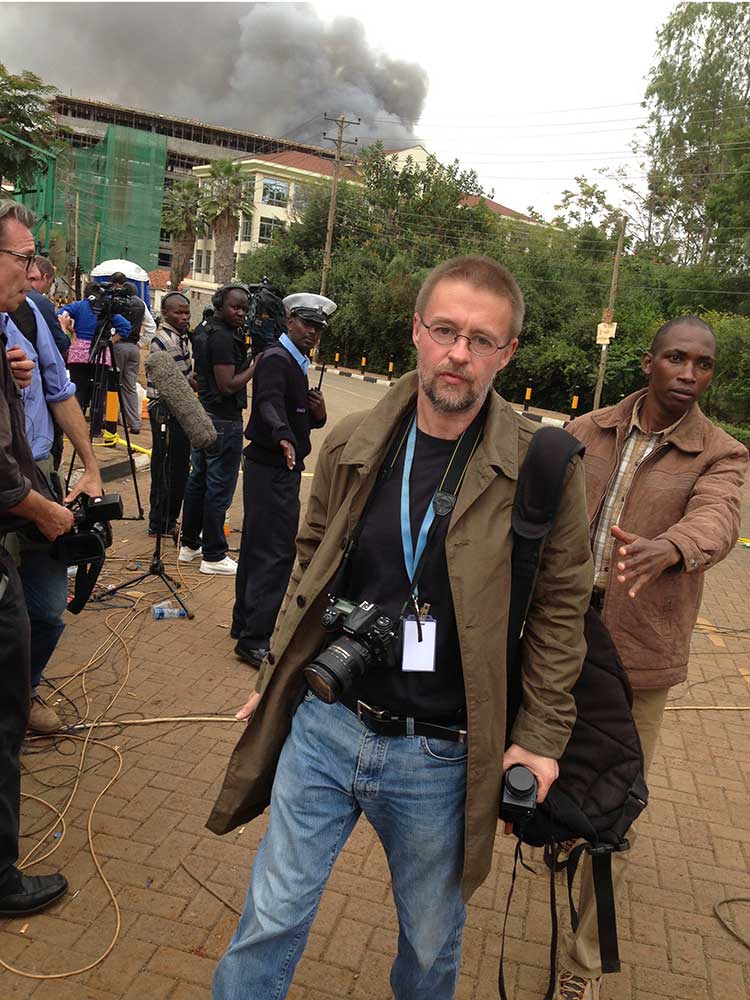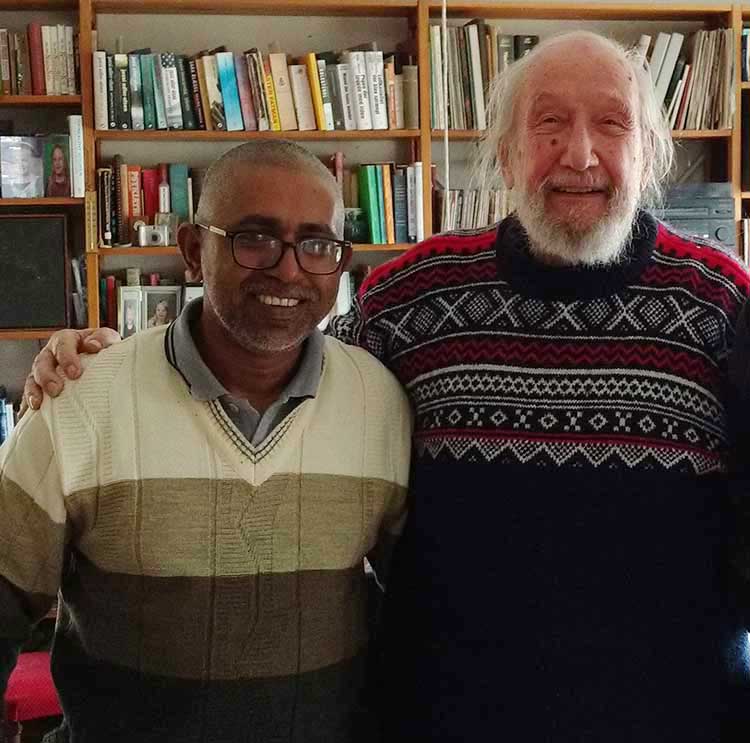
John Scales Avery: Dear friend and colleague in the peace movement, dear highly respected and admired Editor Binu Mathew, can you tell us about your childhood and education? What are the influences that led you to become the Editor of Countercurrents.org, one of the world’s most important and influential alternative news websites?
Binu: I hail from Kerala state, India, the most progressive state in India in terms of political views as well as its performance in Human Development index. Its HDI is comparable to many developed nation. It lies in the extreme southern tip of the Indian Subcontinent. The much celebrated Kerala Model of Development with special focus on education, healthcare and land redistribution has given the Kerala society in general a great foundation for their further search for financial security, social security and intellectual curiosity. Many Keralites have travelled around the world and doing remarkable work in building these societies, especially in the Gulf States, as well as in Europe and USA, serving these communities and thereby securing their financial security. It also needed to be said that the Kerala model of Development mostly helped the upper castes in society. The depressed castes or the former untouchables couldn’t get much benefit from it.
It is in this socio economic back ground that I was born in 1970 to a Syrian Catholic farmer parents. I was the 11th of a 13 children family. I have 5 brothers and 7 sisters. It was very normal in those days especially in agrarian families. An additional hand in the farm was a welcome thing. Family planning was not available to my parents. In those days the mothers gave birth to many children, some survived and some died. In my family all the children survived. Thanks to the care that my parents took in bringing up each child with the available medical facilities. It also needs to be said that I was born in one of the most backward districts, in the hilly Idukki district, to which my parents migrated in the 1950s.
My early education was in a primary school run by my parish. Up to the fourth standard, I studied in this school. From fifth to 7th standard, (from age 10 to 13) I had to walk 4 kilometers climbing mountains and walking through thick forests. From 8th to 10th Standard I lived with my elder sister. Here too we had to walk four kilometers, but it was fun with a lot of friends. The learning medium was Malayalam with English and Hindi as second and third language.
In colleges in Kerala, the learning medium is English. I took a B Sc degree in Chemistry. But during my college days I did a lot of reading. I voraciously read most of the world classics in literature. I was also fortunate to have friends who read and in general we had an intellectual atmosphere where healthy discussions prevailed. Because of my extra readings my grades suffered in the exams. Fortunately I had good marks in English and I joined M.A English and Literature course. Here too I was more into extra readings beyond the syllabus. I never was a great student but a good reader. Here too the grades were not good. Still I managed to get more than 50 % of marks.
By this time, the financial situation at home had become precarious. I couldn’t continue with any further studies. I went back home and worked in the family farm. I worked from 8 in the morning till 5 in the evening with other farm helps. It was back breaking work in rain and hard sun. At night I would read books borrowed from friends, since good libraries were not available nearby or didn’t have the money to buy books.
After two years of farm work I joined a teacher’s training institute. While studying there I saw an advertisement in the news paper inviting journalism trainees to one of leading dailies in Kerala. Fortunately a journalism degree was not required. I applied and fortunately I got the job as a trainee journalist. It was in 1996.
That gave me some financial security. However my intellectual curiosity and my desire to do something positive for the society kept nagging me. The job itself was a monotonous one doing local beats and making local pages.
Some of my college mates and I had some discussions about starting an alternative weekly or monthly in Malayalam language. But the financial cost was huge and it was beyond our capacity.
By the year 2000 the internet was arriving in our homes. There I chanced upon Znet, Electronic Intifada and many such fascinating websites. It was a revelation to me. Znet was a great source of left intellectual literature. Noam Chomsky, the rock star of intellectuals was free to read at the click of a mouse. In those days it was very expensive to buy books by Chomsky. In other websites, I found people telling stories from Palestine and other conflict zones.
In around the same time, I read the book, “When Corporations Rule The World” by David Korten. It was an eye opener. I thought I had to do something more than doing the local beats for my paper. Internet gave me the opportunity to do this. I decided to start a website like Znet.
I had zero knowledge in computing language. So I joined a basic html course. I and some of our friends had a brain storming session and decided on the name “Countercurrents’. I took a loan from bank and bought a computer. It was a 20 GB hard disc, 256 MB RAM computer. It cost me Rs 40 K at 18% interest! I paid it back by monthly installments with my salary.
It was also the time a pogrom in Gujarat against Muslims were going on, in which at least 2000 Muslims were killed. We decided to launch the site as soon as possible. Artist Razi designed the site, Ajith Kumar B converted it into html. I translated an article from Malayalam by the well known writer Sarah Joseph titled, “The Womb and the Sword”, on the attack on pregnant Muslim women in Gujarat, in some cases where the pregnant women’s belly was cut open and the foetuses were thrown into the fire. That’s how I became the editor of Countercurrents. It was on March 27, 2002 the first article was published. Since then more than fifty thousand articles have been published. Thousands of well known and young people have written for CC. Some of them went on to become big journalists or activists.
Avery: What do you consider to be the greatest challenges that the world is facing today?
Binu: When Countercurrents was launched it was mainly an anti-fascist, anti-globalisation, anti-imperialist website. In the initial days or years the articles published also reflected those trends. As the years went by I realised that there are many other important issues that challenge the very existence of humanity. Of course we all knew about the danger of nuclear weapons and the chances of a nuclear winter. As the editor of Countercurrents I came to realise Climate Change as an existential threat. So is the case of resource depletion. These three are the greatest challenges humanity faces today.
Avery: Regarding the danger of catastrophic climate change, can you tell us about your own experiences in the Kerala Provence of India?
Binu: Being the Editor of Countercurrents is not an easy job. In the initial stages, I was trying to wake up people to the danger of climate change with gloom and doom stories. I felt like the world is going to end. I was talking to people like a mad man about the dangers of climate change. It was in early 2000s. Nobody understood the gravity of the problem. The horrors of Abu Ghraib, the horrors of war, the coming age of Peak Oil all traumatised me. Finally my body gave in. I had anxiety attack which was more of psychosomatic in nature. I went into a depression. CC was closed down for a month. Finally I had to visit a psychiatrist, who turned out to be a quack. It gave me some relief. Updating CC was really a mammoth task. Finally In 2006 I met a proper psychiatrist. I’m still on medication. That’s how climate change affected me personally.
As I said, I was talking about and writing about climate change but people were not receptive to the dangers of it. Finally this year, climate change came visiting Kerala as the deluge of the century in August. Around 500 people died in the flood. $ 20 Billion worth of property and infrastructure got damaged. It will take years for Kerala to recover from this flood.
In December 2017 an unprecedented cyclone named Okhi hit Kerala. 250 people were killed. 550 people are still missing.
With these two unprecedented climate events Kerala society is now receptive to the problem of climate change. Many are talking about this. Seminars are being held. Academic circles are just waking up to it. Sadly, there is not much action from the Government of India , the Government of Kerala or from the mainstream media.
Avery: According to the IPCC report of 2018, fossil fuel emmissions must stop within 12 years if we are to avoid tipping points beyond which feedback loops will take over, so that catastrophic climate change will become inevitable despite human efforts to avoid it. Can you describe the most dangerous of these feedback mechanisms and tipping points?
Binu: I’m not a scientist to speak authoritatively on this subject. As far as my knowledge is concerned, the methane bomb, lying dormant in the arctic circle and the Siberian Tundra could seal the fate of the world. If the Methane gas gets released from these places, I guess, humanity does not have chance to reverse global warming.
Avery: Immediate action is necessary to avoid long-term disasters, such as the loss of coastal cities to sea level rise and the increased frequency of deadly heat waves. Why are Governments so slow to react to the need for immediate and strong action?
Binu: It’s because of our economic system is based on the belief of infinite growth. We must realise that infinite growth is impossible in a finite planet. Our economists, champions of industry and politicians will not accept this basic fact. Their very existence is based on this belief. Economists want to keep their hefty salary and their posts. Industrialists want to maximise their profits. Politicians want to get their votes. Politicians will get their votes only if they keep generating jobs. Jobs need growth. It’s time that we change the paradigm. We have to create jobs without runaway growth. I’m sure it’s possible with sustainable modes of economic system. But that may need a systemic overhaul. French revolution changed the way the world works. We need another World Revolution that tips the scale in favour of people. I would like this revolution to be nonviolent.
Avery: Public opinion could force governments to act quickly to save the long-term future from catastrophic climate change. Why is the public so apathetic? What will it take to wake us up? Can you say something about why the mass media have failed us, and why our educational systems have also failed us?
Binu: Yes, our mass media and our educational systems have failed us. It’s because both of them work under the paradigm of perpetual growth. These two pillars sustain the illusion of infinite growth. In fact, it’s a matter of their very existence. Without growth and the resultant advertisements by corporates how will mass media survive? Without the copious donation from industry how will universities survive? These universities produce servants of the system. They are in the matrix. As for the public they are fed on the mass media. Mass media is the opium of the masses. As for the academics, they train the future generation to sustain the system. Only a World Revolution can break through this matrix and wake up people. This world revolution will force governments to act quickly and decisively and it has to happen urgently. I say we need a WORLD REVOLUTION, NOW!
Avery: Sir David Attenborough has had an amazing career in which he has made the entire world aware of the beauty and fascination of nature. Could he now use his great influence to make the BBC give more attention to the danger of an environmental mega-catastrophe?
Binu: Yes, leaders like Sir David Attenborough must come forward and take leadership. The politicisation of journalists, academics, scientists, students etc is the need of the hour. Dr. James Hansen, who first testified in the US Senate, about the dangers of climate change is leading the way. He’s filed a case against the US government for the survival of the future generations. He’s also got arrested for protesting against government inaction on climate change. What Dr. Hansen has done must be emulated by millions and billions of others around the world. Then we’ll have a world revolution.
Avery: How is the refugee crisis linked with climate change? Is the refugee crisis responsible for the rise of neo-facism in politics?
Binu: Refugees come from different backgrounds. Some of them are war refugees. To be specific, resource wars! There are climate refugees also. I think in the near future, climate refugees will become a big problem that the world will have to tackle. Aliens or the Other always give rise to demagogues or neo-fascists. With the recent rise of demagogues or neo-fascists around the world, we’ve seen only the tip of the iceberg. The crisis is going to get bigger and bigger and the rise of reactionary forces will be even stronger.
Avery: Humanity and the biosphere are also threatened by the danger of an all-destroying thermonuclear war. It could occur through a technical or human failure, or through uncontrollable escalation of a war fought with conventional weapons. Can you say something about this great danger?
Binu: A nuclear winter is always a possibility. If climate change and resource crisis lead us to a collapse of civilization which Jared Diamond has evoked so vividly in his book “Collapse: How Societies Choose to Fail or Succeed”, then the biggest question will be what to do with our nuclear stock piles. Not just nuclear weapons, but also nuclear power plants and nuclear wastes. In such a scenario, a mishap will be the end of humanity and all other species on this earth.
Avery: Military-industrial complexes throughout the world need dangerous confrontations to justify their enormous budgets. Can you say something about the dangers of the resulting brinkmanship?
Binu: I would say military industrial complexes run our so called ‘democracy’. Once we elect a government, the military industrial complex take control of the elected leader. These leaders bark when they are asked to by the Complex. To run this huge profitable business, they need constant war. That’s why the world never has peace. There is also another reason to it. The war machine is one of the very few profitable businesses left in our collapsing economic system. This profit is made by government debt ie, borrowing from the future generation. We borrow from the future generations to kill our own generation so that a few people in the military industrial complex make handsome profits.
Avery: The end of the fossil fuel era will mean that modern high-yield agriculture will be difficult to maintain in the future. How will the world feed its growing population? How can agriculture best respond to this crisis? To what extent is the explosive growth of global population responsible for the current crisis of civilization?
Binu: If the rate of growth of humans continue at the same level we will have about 10 Billion people on this planet by 2050. This is an undeniable fact that modern agriculture fuelled by fossil fuels created this population explosion. Most of the history of civilization the population was below one billion as the graph below will show.
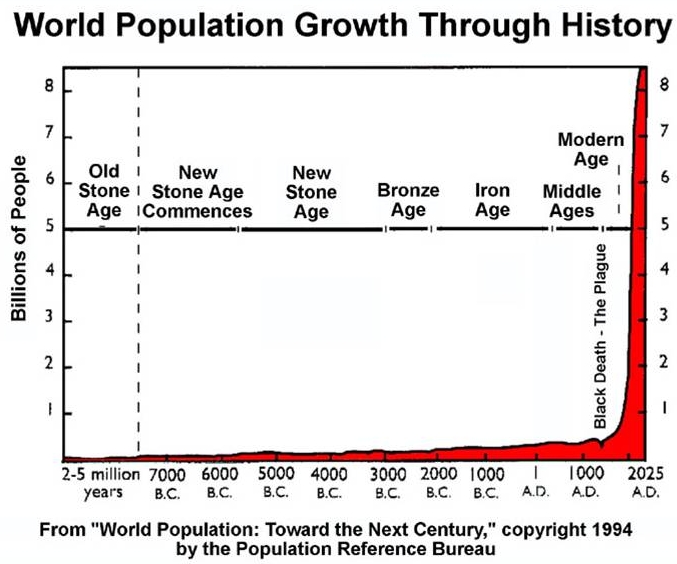
You can see that it was during the fossil fuel era that human population exploded into exponential growth. Once fossil fuels become rare, it will be difficult to sustain modern farming systems. The only way I see is that go back to the old farmstead farming system. For that monopoly agri corporations will have to be dismantled. That needs strong political will. For that too as I said earlier, a world revolution is needed. I hope we can feed a sustainable number of people, not at this rate growth. Strong family planning measures are urgently needed. Otherwise it would be catastrophic.
Avery: The alternative media deserve both our gratitude and our financial support for their vitally important role in counteracting the propaganda, lies and omssions of the corporate controlled mass media. Could you say something about the financial needs of Countercurrents?
Binu: The very existence of alternative media is under threat. When it began internet was a democratic medium. It is no longer the same. A few monopolies have taken control of the internet. The monopolies like Google and Facebook decide what you see on the internet. Google has de-ranked most alternative media sites from its search results. So, reaching the public with a different narrative has become all the more difficult. I would say, truth is being muffled by these monopolies. I very rarely post CC content on Facebook. Anyway, they won’t give us visibility, then why bother? I would request who want to read Countercurrents regularly to subscribe to our news letter. I hear that Gmail is pushing many such mails to the spam folder. So it’s an uphill task for us to disseminate the alternative narrative.
Financially, Countercurrents doesn’t accept advertisements by policy. If we accept advertisements we would be doing the bidding of the advertisers. CC also doesn’t accept any institutional funding. It’s by whatever our generous readers contribute that CC survives.
In 2015 my employers ask me to choose between CC and their job, I instantly quit the job and opted for CC. So I don’t have the cushion of a steady salary to fall back upon. So from multiple levels the existence of alternative media and especially CC is facing challenges.
John Scales Avery is a theoretical chemist at the University of Copenhagen. He is noted for his books and research publications in quantum chemistry, thermodynamics, evolution, and history of science. His 2003 book Information Theory and Evolution set forth the view that the phenomenon of life, including its origin, evolution, as well as human cultural evolution, has its background situated in the fields of thermodynamics, statistical mechanics, and information theory. Since 1990 he has been the Chairman of the Danish National Group of Pugwash Conferences on Science and World Affairs. During his tenure The Pugwash Movement won a nobel peace prize. Between 2004 and 2015 he also served as Chairman of the Danish Peace Academy. He founded the Journal of Bioenergetics and Biomembranes, and was for many years its Managing Editor. He also served as Technical Advisor to the World Health Organization, Regional Office for Europe (1988-1997).
(This interview was done over email. This is the first in a series of interviews that Countercurrents will be publishing.)


